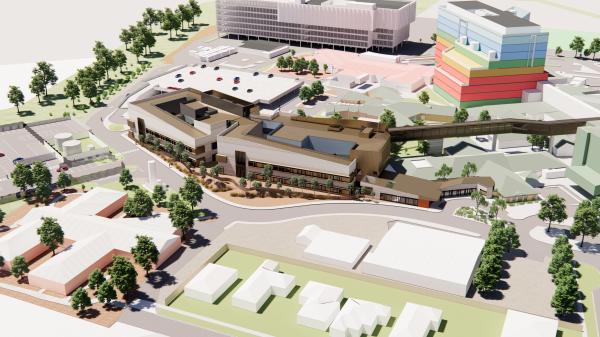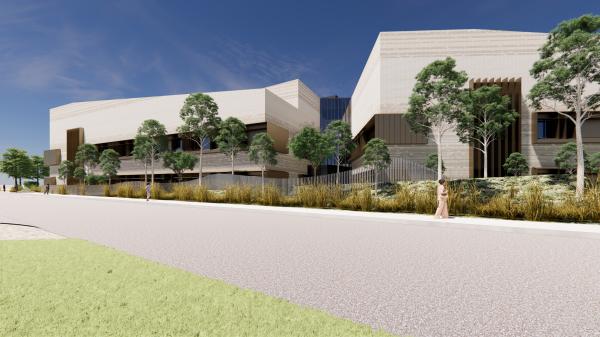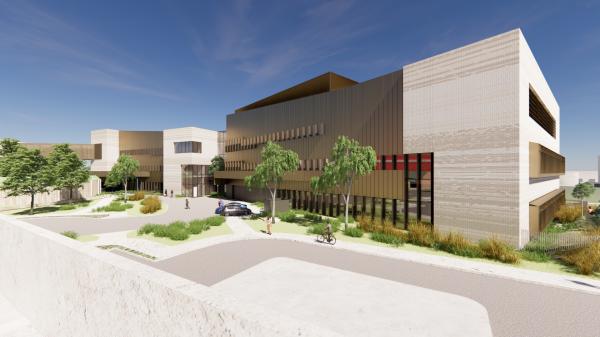Tara Murray
Close to half of the 120 new beds planned for four acute mental health facilities across Melbourne will be located in Sunshine, the state government has revealed.
Fifty-two beds will be based at Sunshine’s new acute mental health facility, which was announced as part of last year’s state budget. The remaining beds will be at Epping, Geelong and Parkville.
Work on the facilities will start mid-year, with the facilities expected to be operational by 2023.
Designs for the new facilities were revealed by Minister for Mental Health James Merlino last week.
Mr Merlino said the designs reveal each facility’s exteriors, grounds and internal fit-outs, which have been carefully considered to create a safe, welcoming, and healing atmosphere for consumers on their treatment and recovery journey.
The state government said the beds will deliver 43,000 extra days of hospital-based care, meaning an estimated 2500 more people will be able to get the help they need.
Orygen Clinical Services program manager Brendan Pawsey said the new beds were much needed.
Orygen, which is Australia’s centre of excellence in youth mental health, runs a number of services across Melbourne’s north-west, including headspace at Sunshine.
Mr Pawsey said is was still unclear how many of the beds would be for adults and how many would be for young people.
“There is a high need for mental health,” he said.
“There’s a growing population out here.
“There needs to be funding right across the mental health sector. From primary health care through to the acute end.”
Mr Pawsey said the acute beds provide somewhere for people to stay for a night, a couple of days or a couple of weeks to get the support they need.
He said many people are currently having to stay in Box Hill or Epping to get help.
“There needs to be more local options,” he said.
“They are being transported elsewhere like Box Hill or Epping, which makes it more difficult.
“It’s’ more isolating as they’re in another region from where they live and the support network can’t provide the support needed.”










